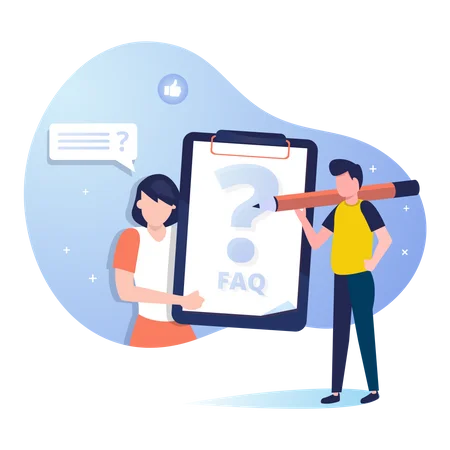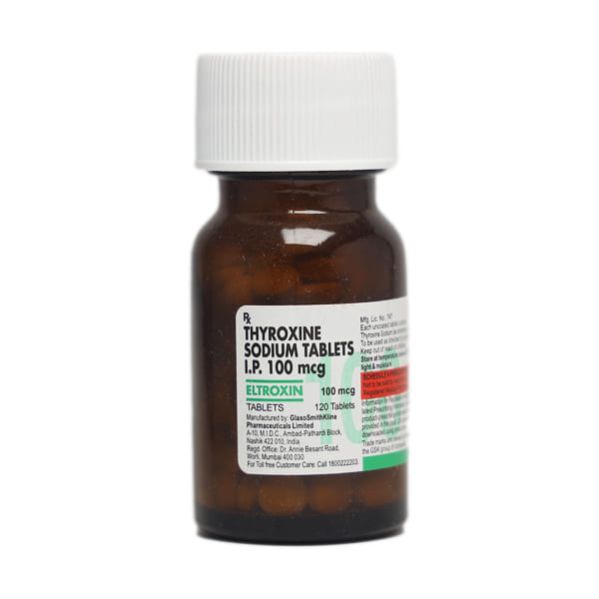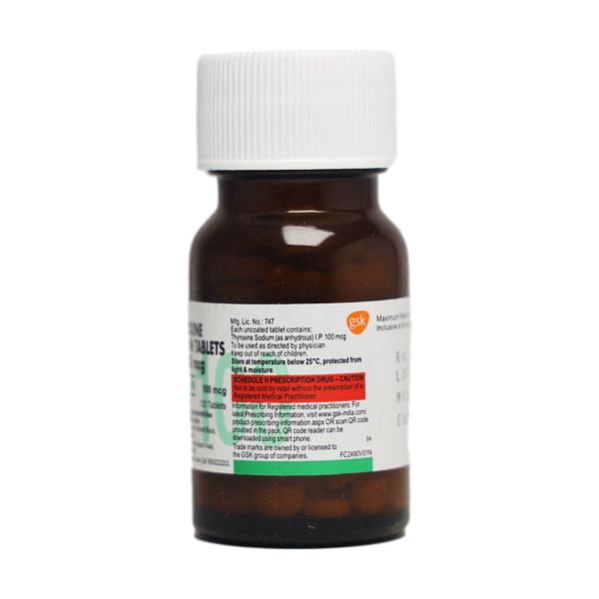ELTROXIN 100mcg Tablet 120's
Thyroxine 100 mcg
₹ 164.00
₹177
(Inclusive of all taxes)
-

No Warranty
-

COD Avilable
-

Non Returnable
-

cancelable
About this item
INTRODUCTION ABOUT ELTROXIN 100MCG TABLET
ELTROXIN 100MCG TABLET contains Thyroxine, which belongs to the group of medicines called Synthetic thyroid hormones. It is used in the management of hypothyroidism. ELTROXIN 100MCG TABLET is not recommended for use if you have unmanageed hyperthyroidism, unmanageed subclinical or overt thyrotoxicosis, unmanageed adrenal insufficiency, or pituitary insufficiency. Consult your doctor before taking it.
ELTROXIN 100MCG TABLET should be used with caution in patients with coronary heart disease such as acute myocardial infarction, acute myocarditis, acute pancarditis, angina pectoris, and hypertension. Consult your doctor before taking it. ELTROXIN 100MCG TABLET can be used safely in pregnant and breastfeeding women and requires dose adjustment. Consult your doctor before taking it.
The most common side effects of taking ELTROXIN 100MCG TABLET are increased appetite, weight variations, headache, vomiting, diarrhea, changes in the menstrual cycle, fever, sensitivity to heat, cramps, and mood swings. Consult your doctor if any of the side effects worsen.
USES OF ELTROXIN 100MCG TABLET
- To manage hypothyroidism
HOW ELTROXIN 100MCG TABLET WORKS
ELTROXIN 100MCG TABLET contains thyroxine, which controls the entire metabolic activity of the body and is very important for the proper functioning of our body.
DIRECTIONS FOR USE
Take ELTROXIN 100MCG TABLET in the morning on an empty stomach at least half an hour before breakfast or as directed by the physician. Swallow the medicine with a glass of water. Do not chew the medicine. Your doctor will decide the correct dose and duration of therapy for you depending on your age, body weight, and disease condition.
SIDE EFFECTS OF ELTROXIN 100MCG TABLET
COMMON
- Increased appetite
- Weight variations
- Headache
- Vomiting, diarrhoea
- Changes in the menstrual cycle
- Fever
- Sensitivity to heat
- Cramps and mood swings
HOW TO MANAGE SIDE EFFECTS
Diarrhea
Drink lots of fluids, such as water or fruit juices, to keep yourself hydrated. Do not take any medicine on your own to manage diarrhea. Contact your doctor if your diarrhea does not improve.
Headache
Rest and relax. Drink plenty of fluids, such as water or ORS (Oral Rehydrating Solution), and apply a pain-relieving balm to the head if necessary. Contact your doctor if your headache does not improve.
Nausea And Vomiting
Take ELTROXIN 100MCG TABLET with a meal. Stick to simple meals. Avoid eating oily or spicy food. Contact your doctor if your vomiting does not improve.
WARNING & PRECAUTIONS
PREGNANCY
Consult your doctorELTROXIN 100MCG TABLET can be used for women who are pregnant or are planning conception. Consult your doctor before taking it.
BREASTFEEDING
Consult your doctorELTROXIN 100MCG TABLET can be used for breastfeeding women. Consult your doctor before taking it.
DRIVING AND USING MACHINES
Use with CautionELTROXIN 100MCG TABLET does not have any influence on the ability to drive or operate any machine.
KIDNEY
Consult your doctorELTROXIN 100MCG TABLET does not have any significant effect on patients with kidney disease. Consult your doctor before taking it.
LIVER
Use with CautionELTROXIN 100MCG TABLET should be used with caution in patients with liver disease due to impaired metabolism. Consult your doctor before taking it.
ALLERGY
ContraindicatedDo not take ELTROXIN 100MCG TABLET if you are allergic to thyroxine or any other ingredients in this medicine.
HEART DISEASE
Use with CautionELTROXIN 100MCG TABLET should be used with caution in patients with coronary heart disease such as acute myocardial infarction, acute myocarditis, acute pancarditis, angina pectoris, and hypertension. Consult your doctor before taking it.
USE IN PEDIATRICS
ContraindicatedELTROXIN 100MCG TABLET is not recommended for use in children and neonates under 2 years of age. Consult your doctor before taking it.
USE IN GERIATRICS
Use with CautionELTROXIN 100MCG TABLET should be used with caution in elderly patients (aged 65 years and above). Consult your doctor before taking ELTROXIN 100MCG TABLET.
OTHERS
ELTROXIN 100MCG TABLET is not recommended for use if you:
- Have unmanageed hyperthyroidism
- Have unmanageed subclinical or overt thyrotoxicosis
- Have unmanageed adrenal insufficiency
- Have unmanageed pituitary insufficiency
Before taking ELTROXIN 100MCG TABLET, inform your doctor if you:
- Have severe or chronic hypothyroidism
- Have a history of thyroid cancer
- Have diabetes mellitus or insipidus
- Have pituitary and/or adrenocortical insufficiency
- Have thyroid autonomy
- Have secondary hypothyroidism or panhypopituitarism
- Have a history of fits
- Have myxoedema
- Have malabsorption syndrome
INTERACTIONS
A. Drug-Drug interactions:
Before taking ELTROXIN 100MCG TABLET, inform your doctor if you are taking any of the following medicines:
- Cholestyramine, colestipol, clofibrate, simvastatin, and lovastatin (medicines used to manage high cholesterol levels in the blood)
- Calcium, aluminium, magnesium, and iron supplements
- Polystyrene sulfonates, kayexalate (used to manage high potassium levels in the blood)
- Lanthanum, sevelamer (used to manage high phosphate levels in the blood)
- Pantoprazole, rabeprazole, and sucralfate (medicines used to manage stomach ulcers)
- Soya products and a high-fiber diet
- Orlistat (a medicine used to reduce weight loss)
- Propylthiouracil (used to manage hyperthyroidism)
- Glucocorticoids (medicines used to manage inflammatory and autoimmune diseases) Ex. cortisone, prednisone
- Propranolol (used to manage heart problems)
- Lithium (used to manage mania)
- Beta receptor blockers (medicines used to manage heart problems) Ex. propranolol, atenolol
- Amiodarone (used to manage irregular heartbeats)
- Iodinated contrast media (used in imaging techniques)
- Salicylates (used to manage pain, fever, and inflammation) Ex. aspirin
- Furosemide (used to manage heart problems)
- Anticonvulsants such as carbamazepine and phenytoin (used to manage fits)
- Oestrogen based contraceptives (medicines used to manage fertilization) Ex. ethinylestradiol, norethindrone
- Sertraline, amitriptyline, and imipramine (medicines used to manage depression)
- Chloroquine or proguanil (used to manage malaria)
- Tyrosine kinase inhibitors (Ex. imatinib and sunitinib)
- Barbiturates
- Rifampicin (used to manage tuberculosis)
- St. John's Wort (Hypericum perforatum), an herbal medicine used to manage depression
- Protease inhibitors, Ex. ritonavir (used to manage viral infections)
- Methadone (used to manage pain)
- 5-flutouracil (used to manage cancer)
- Coumarin derivatives (medicines used to manage blood clotting) Ex. warfarin
- Digitalis (used to manage heart conditions)
- Sympathomimetic agents (Ex. adrenaline), used to manage severe allergic reactions, cardiac arrest
- Insulin or other anti-diabetic therapy Ex. metformin (used to manage diabetes mellitus)
Overdosage:
If you or anyone else accidentally took more ELTROXIN 100MCG TABLET, consult your doctor immediately or visit the nearby hospital. Overdosage may cause hyperthyroidism, and symptoms include agitation, confusion, irritability, hyperactivity, headache, sweating, mydriasis, fast heartbeat, irregular heartbeat, fast breathing, fever, increased bowel movements, and fits. Psychiatric symptoms associated with hyperthyroidism may also occur, including affectability, fatigue, anxiety, and nervousness. In severe cases, it causes a thyrotoxic crisis and leads to seizures, cardiac arrhythmias, heart failure, and coma.
SYNOPSIS
| Drug | : | Thyroxine |
| Pharmacological Category | : | Thyroid Hormones |
| Therapeutic Indication | : | Hypothyroidism |
| Dosage Forms | : | Tablet |
MORE INFORMATION
STORAGE
- Keep ELTROXIN 100MCG TABLET out of the sight and reach of children
- Store ELTROXIN 100MCG TABLET below 25°C
0 Review Of Product ELTROXIN 100mcg Tablet 120's














